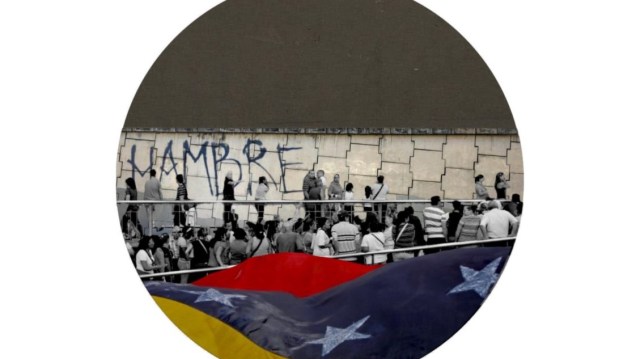
While people in the U.S. are on the brink of an explosive political conflict and brace for years of unrest in a divided country full of painful unresolved issues, a Venezuelan citizen shares what he learned during decades of denial, misinformation and polarization.
By Caracas Chronicle – Raúl Sánchez Urribarri
Nov 16, 2020
Personally, I can’t remember a time when I didn’t live in crisis in one form or another. I grew up, studied, became a professional and began my academic life in Venezuela, a country where ‘la crisis’ began almost four decades ago and hasn’t ended since.
Sure, what the word means and the feelings it elicits have changed over time. First, it was a monetary and budgetary crisis, then it was a protracted social crisis, and eventually a political crisis – a crisis of institutions, political parties and governance. A crisis of values and even a spiritual crisis. La crisis was everywhere.
One episode after another brought about more and more changes to the extent that what was ‘crisis’ and, per se, transient and contingent, became permanent.
Thus, we began experiencing different processes at a personal and collective level to cope with those new waves of reality, trying to make sense of the changes so our sense of self and belonging wouldn’t disappear in the process. In the beginning it was denial – sure this can’t last forever, ‘no hay mal que dure cien años’ (no evil lasts a hundred years!) – then it was bargaining and relativization (not everything is bad!); then it was disgruntled acceptance (well, it’s bad, but what can we really do?).
Some, though, suffered more from the crisis than others. A big part of the resentment that accumulated those years lied precisely on the reality and perception of who was bearing the brunt of the crisis as it unfolded. And thus came protests, and demonstrations, and strikes, and eventually riots, and coup attempts, and a president removed, and a collective sense of institutional decay.
What was, was no longer there. What was to come, wasn’t here yet.
The Emotional Divide
It was against this backdrop that the Bolivarian Revolution took place and our attempt to move beyond the crisis began. Yet, not everyone could sail to the promised sea of happiness on the same terms. Someone had to be blamed, and anyone who sided with those who were blamed should be equally blamed and excluded from participating in the exercise of (re)building the nation and leaving two decades of crisis behind… when that time comes, of course.
Yet, doing this didn’t do away with the sense of crisis and collective malaise—it transformed it. From then on, we began experiencing the country’s unsteady, volatile and violent transformation in two main ways: one lived by chavistas, hopeful in their leader and project but in constant crisis because of the sense that, at any time, the internal/external, real/imaginary enemies of the Revolution could take everything away; and another mainly experienced by millions of Venezuelans in the opposition, struggling to stop the process of transformation and feeling that everyday could bring another change that affected them negatively.
Beyond ideologies and personal positions about who Chávez was and what chavismo meant to Venezuela, perhaps this emotional divide was the deepest trench between chavistas and opositores. Each feeling blamed for each other’s suffering, in an environment of collective anxiety and dread. All of us engaged in a vicious circle that became self-referential, and is now becoming intergenerational, making it harder to escape or imagine a future premised on mutual recognition. Meanwhile, all of us with constant mixed feelings, the ups and downs of hope and disappointment that we have experienced in the midst of this process.
They Rewrite Past and Future, You Focus on the Present
We didn’t do away with the crisis in the end. We moved on and made it part of our lives, over and over. We normalized it, just to see it emerging again, with new, more destructive phases, new stages that don’t seem to vanish. Worse, we created different narratives for the past and present, entrenching a rhetoric that could pave a way for mutual coexistence – a precondition to overcome this awful episode in our history.
…
Read More: Caracas Chronicle – How to live in a country in constant crisis
…

